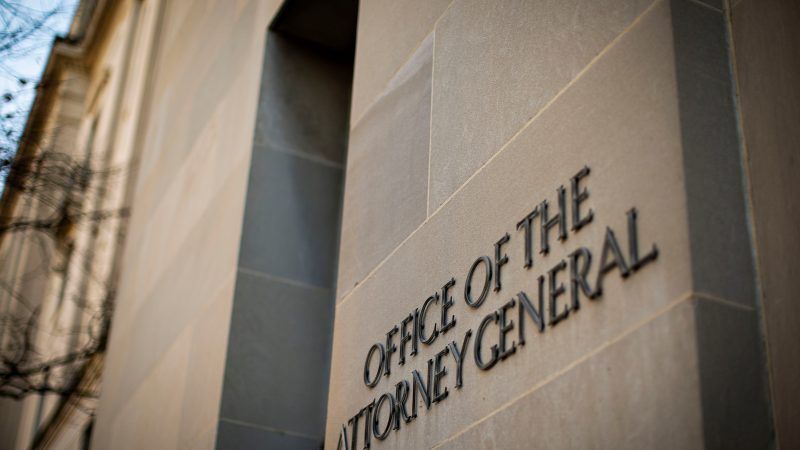Justice Department Rescinds Trump-Era Memo Ordering Prosecutors To Seek Harshest Sentences
The memo reverses a directive from former Attorney General Jeff Sessions that ordered federal prosecutors to throw the book at low-level drug offenders.

The Justice Department has rolled back a Trump-era memo that directed federal prosecutors to seek the harshest charges and sentences available to them.
In a memorandum released today, reported by HuffPost, acting Attorney General Monty Wilkinson rescinded a 2017 memo that ordered federal prosecutors to seek the toughest charges and maximum possible sentences on the books.
"The goal of this interim step is to ensure that decisions about charging, plea agreements, and advocacy at sentencing are based on the merits of each case and reflect an individualized assessment of relevant facts while longer-term policy is formulated," Wilkinson wrote in the memo.
In 2013, former Attorney General Eric Holder ordered federal prosecutors to avoid charging certain low-level offenders with drug charges that triggered long mandatory sentences. The directive was an attempt to mitigate some of the notoriously harsh drug sentences that the federal guidelines and sentencing laws created.
In 2017, however, former Attorney General Jeff Sessions, a staunch defender of mandatory minimum sentences, rescinded Holder's memo, giving prosecutors the green light once again to hammer drug offenders. Prosecutors who wished to depart from this guidance were required to get a supervisor's approval.
"We are returning to the enforcement of the laws as passed by Congress, plain and simple," Sessions said in a speech at the time. "If you are a drug trafficker, we will not look the other way, we will not be willfully blind to your misconduct."
Sessions blamed Holder's 2013 "smart on crime" initiative for a national rise in crime in 2015 and 2016. This claim was absurd on its face; Holder's memo may have led to shorter sentences for only around 500 federal drug offenders each year.
"The Acting Attorney General's interim guidance replaces a directive that made it more difficult for prosecutors to exercise their traditional discretion and to pursue justice on a case-by-case basis," a Justice Department spokesperson said in a statement to Reason. "The interim guidance returns to the well-established approach of emphasizing that prosecutorial decisions should be made after a careful consideration of the particular facts and circumstances of individual criminal cases."
The Biden administration has already started rolling back other Trump-era criminal justice policies. Earlier this week, President Joe Biden signed an executive order directing the Justice Department not to renew any contracts with private prisons.
Other Trump-era Justice Department policies could also be on the chopping block. For example, Sessions also rolled back Obama-era Justice Department guidance on civil asset forfeiture that restricted when federal authorities could "adopt" local cases. Such adoptions are one of the primary ways state and local police get around stricter state laws on civil asset forfeiture, which allows police to seize property suspected of being connected to criminal activity even when the owner is not charged with a crime.


Show Comments (42)